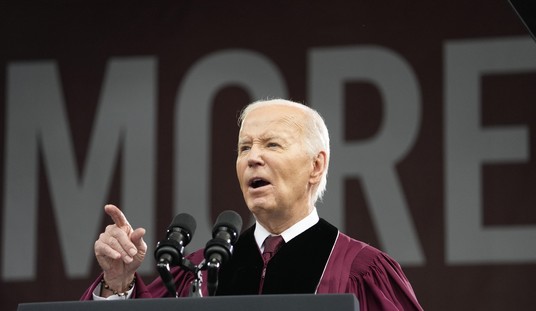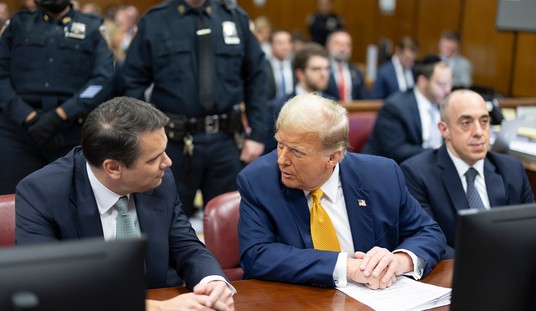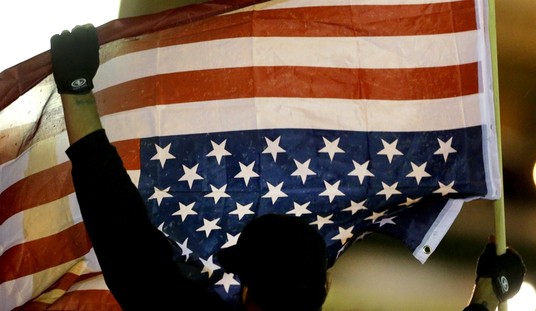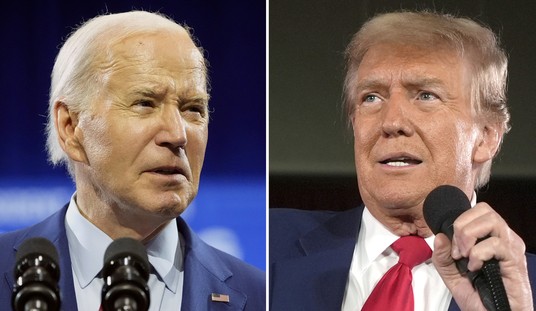Alfred W. McCoy argues that president Obama may be regarded by future historians as an unappreciated geopolitical genius. “Since he took office in 2009, Obama has faced an unremitting chorus of criticism, left and right, domestic and foreign, dismissing him as hapless, even hopeless. … But let’s give credit where it’s due.”
Obama’s military has adopted a more mobile Middle Eastern footprint of advisers, air strikes, drones, and special operations squads. … Obama’s diplomats have, for instance, pursued reconciliation with three “rogue” states—Burma, Iran, and Cuba—whose seemingly implacable opposition to the U.S. sprang from some of the most disastrous CIA covert interventions of the Cold War. Moving from repair to revival, from past to future, President Obama has been using America’s status as the planet’s number one consumer nation to create a new version of dollar diplomacy.
McCoy believes the president has deep geostrategic plan. In comparison to China which has based its grand strategy on Sir Halford Mackinder‘s concept of dominating the “world island” by trying “to unify Eurasia economically through massive construction projects financed by loans, foreign aid”, McCoy thinks Obama has “unleashed a countervailing strategy, seeking to split the world island economically along its continental divide through the Trans-Pacific Partnership (TPP) … this treaty aspires to a Pacific economic integration unparalleled in any existing trade pact. In the process, it would draw these highly productive nations away from China and into America’s orbit.”
If so Obama is trying to execute his strategy without either substantially increasing the size of the Navy or the relative clout of the US economy. As Martin Jacques notes in the Guardian, without American economic expansion to counter the raw growth at the core of China’s grand strategy, Beijing may bull its way past the alliance perimeter of American diplomacy. Jacques explains this is happening now:
The UK became the first non-Asian country to join the Asian Infrastructure Investment Bank (AIIB), after which more than 30 other countries joined, including Germany and France. The United States opposed the decision because it saw the AIIB as a threat to the International Monetary Fund and the World Bank. The underlying thinking behind the British decision has since become clear. … At the time of the last state visit to Britain by a Chinese president, that of Hu Jintao in 2005, the UK economy was still slightly larger than that of China: today China’s GDP, by the most conservative measure, is over three times greater. We are fast becoming a minnow by comparison.
China now accounts for over a quarter of its [Australia’s] exports – far greater than America’s share. That, by default, means Australia has come to enjoy a much closer relationship with China”.
How much of Chinese prosperity is sustainable is a matter of conjecture. Stephen Brooks and William Wohlforth think “China—the only country with the raw potential to become a true global peer of the United States—also faces a more daunting challenge than previous rising states because of how far it lags behind technologically … Half of all Chinese exports consist of what economists call ‘processing trade,’ meaning that parts are imported into China for assembly and then exported afterward. And the vast majority of these Chinese exports are directed not by Chinese firms but by corporations from more developed countries.”
The only trouble with this comforting scenario is it is too reminiscent of the 1941 contempt for “Made in Japan” which persisted until Mitsubishi Zeros annihilated RAF Hurricanes over Singapore. Still, as Zbigniew Brzezinski noted in a recent article that if America “is no longer the globally imperial power … neither is any other major power.” China is not quite there yet. Russia, Brzezinski dismisses as being in “the latest convulsive phase of its imperial devolution”. Europe “is not now and is not likely to become a global power” and the Muslim world it is blowing itself up as the time-delay fuses of Islamic schism detonate within its bowels.
Indeed if future historians ascribe any retrospective genius to Barack Obama it will be that he let the whole tottering post World War 2 structure burn down in an oops moment, a policy which Roger Cohen of the NYT dignifies as “Obama’s Doctrine of Restraint”. Cohen writes that “this president is skeptical of the efficacy of military force, wary of foreign interventions that may become long-term commitments, convinced the era of American-imposed solutions is over, and inclined to see the United States as less an indispensable power than an indispensable partner. He has, in effect, been talking down American power.” Perhaps “taking down” would have been a more accurate phrase.
The disordered parts of the world are predictably breaking down within that power vacuum. The great refugee flows of the 21st century may one day be compared to the colossal human cavalcades that followed the dissolution of the Ottoman Empire, the fall of the Third Reich or the Partition of India. The vast stream shambling toward Europe are the jetsam of a retreating empire, an event so cataclysmic that, as Josef Joffe of the Hoover Institution points out none of Obama’s successors can possibly reverse it — not on the old terms anyway.
Take Donald Trump, who sails under the Republican flag. He calls the Atlantic Alliance “obsolete” and accuses the Europeans of “ripping off the United States.” Let NATO “break up.” Protect Japan? “We are just not going to be able to do it any more.” Instead, “we have to rebuild our country.” …
Farther to the left, Bernie Sanders intones, “We cannot and should not be policeman of the world, nor bear the burden of fighting terrorism alone.” Expanding entitlements and social spending at home comes first. Call this “welfarist isolationism.” …
Cruz wants to “make border security a top priority,” given the threat of “ISIS activities on our southern border.” This is the oldest isolationist dream: America First, the Novus Ordo Seclorum as fortress shielded by two oceans—and now by concrete and brigade-sized border patrols. And there goes the “indispensable nation” in a bipartisan blaze of insouciant resentment. …
Clinton supported Obama’s hasty retreat from Iraq that gave us ISIS. She refused to call the attack on the U.S. compound in Benghazi in 2012 a pre-meditated Islamist offensive. She was also the author of the starry-eyed “reset” Vladimir Putin has ignored in favor of Russia’s resurgence. Yes, Obama’s failure to honor his “red line” against Assad’s chemical weapons, “cost us,” Clinton later conceded. But at the time, she cheered the decision.
A world is gone, yet it was not by design. A new book by Mark Landler, Alter Egos: Hillary Clinton, Barack Obama, and the twilight struggle over American Power suggests Obama came to isolationism by accident. He began in 2008 promising “to lead the world anew” and according to a book review by the Washington Post, the early Obama administration was set to bestride the world. Then the house of cards they were building collapsed.
Back in the halcyon, pre-Benghazi days, when the U.S. intervention in Libya seemed successful, Clinton’s team wanted to make sure everyone knew that it was all hers. Top aide Jake Sullivan put together a list of items showcasing Clinton’s “leadership/ownership/stewardship of this country’s Libya policy from start to finish” and urged the secretary to seize the moment with an op-ed articulating “something definitive — almost like the Clinton Doctrine.”
Obama was more circumspect about the intervention. When then-White House aide Samantha Power, author of the Pulitzer Prize-winning “A Problem From Hell,” spoke up in the Situation Room about America’s moral responsibility to protect Libyan civilians, Obama snapped back: “This isn’t an opportunity for you to write a new chapter of your book.”
The administration’s “pivot to Asia,” which Landler describes as a “healthy collaboration” between Obama and Clinton, also produced a “bitter tug-of-war between those who tried to claim authorship.” It was almost comical, with Obama national security adviser Tom Donilon and Clinton both racing to produce thinky journal articles that would plant flags in the administration’s renewed focus on U.S. leadership in Asia.
The Arab Spring, reset with Russia and all the rest of it came crashing to a heap. Faced with an employer who had diminished himself Obama’s “inner circle” devoted itself “to finding symbolic, legacy-building opportunities for the boss. Ben Rhodes, Obama’s foreign policy whisperer, regarded outreach to closed societies such as Cuba as ‘exactly what a history-making president like Obama should be doing'”. A less charitable view might regard it as an attempt to make up with showmanship what was so sorely lacking in substance. The Pax Americana was not so much abandoned as expired unnoticed along the way. The administration lost track of it some miles back and haven’t seen it since.
The most compelling reason to doubt that the president is pursuing a deep geopolitical strategy is if he had one then everyone would have heard about it by now. Effective geopolitical strategies, whether Rome’s campaign against Carthage, Britain’s determination to control the seas, America’s strategy of the unconditional defeat of the Axis powers or the containment of the USSR during the Cold War are publicly articulated. They are communicated to the town square, shouted from the housetops because great national undertakings require a broad public consensus and made part of popular myth. Heart of Oak, a British Tar, Rule Brittania and all that. If pundits have to guess what Barack Obama’s grand strategy is, the odds are he doesn’t have one.
Yet like some phantom limb which an amputee instinctively tries to move, the World still reflexively looks to the missing hegemon. Where’s Will Kane? Where’s the sheriff got to? Even the Washington Post editorial board, perhaps out of habit, says “the United States should be preparing for [a Venezuelan] implosion”. Even the people who shouted “Yankee to go home” counted on it for decades to be there. Today there is an unabated clamor for “someone” to stop the Russian threat in Eastern Europe, stabilize the Middle East to keep refugees from flooding Europe, deploy armored brigades on the border with Russia, keep China from invading the Philippines, dissuade Beijing from invading Taiwan, convince China from menacing Japan, prevent North Korea from invading the South, preserve Africa from Ebola, stop ISIS from blowing up the world’s capitals, etc.
Well “someone” should tell the world that “someone” has left town and they had better find someone else to do it. But there isn’t anyone as Brzezinski observed, and that is exactly the problem. Josef Joffe says that America’s previous attempts at isolation failed for precisely the reason that no one in the West stepped up to take out the trash until America crossed Omaha Beach. There may be better, more efficient ways to work, Joffe says, but the sad fact is that “the ‘indispensable power’ cannot take time off.”
Isolationism worked very nicely when the Royal Navy patrolled the Atlantic in the 19th century. Today, there are no great powers around to take care of business if the United States continues to slink off into self-containment. There are only rivals like Russia, China, and Iran who are happily expanding into their surrounding neighborhoods and beyond.
Isolation doesn’t work well in our globalized world. Perhaps a planet more distinctly divided into nations can live with a smaller America. The present one requires the America of old to keep the seas open, data moving, money flowing and the bad guys down. The schizophrenia of the TPP is it presumes a hegemon it intends to replace.
It is no coincidence that borders have become a flashpoint in the world of Hope and Change. They distill the contradictions which that world has created, but has not recognized. Maybe the true purpose of national borders is not to keep people out, but to keep people in. Without borders — and without a hegemon — there is moral hazard to every failed state such as Venezuela because voters can vote themselves ruinous policies and escape to the next country when things get bad.
Obama’s biggest mistake was to imagine you could have a globalized world without someone to run it. One or the other, but not both.
If America is ever forced to come back into the ring, then president Obama may be remembered by posterity as the man who tried to unsucessfully skip out on his credit card payments without moderating his purchases. Justifiably angered by the high monthly minimums left to him by the commitments of his predecessors Obama defaulted on his obligations, taking an armful of bills each day from the mailbox direct to the incinerator thinking he was free of the bills until the repo men of history showed up. It turns out there were things the world could not do without yet which we have still not figured out how to pay for. That is the essence of the crisis.
The postwar American going concern has to become a startup again. For good or ill, the Obama legacy will force it to reinvent itself. Obama’s successor — whether that is Donald or Hillary — must grapple with problems which the administration cannot even acknowledge yet exacerbated to the point where it cannot be ignored. Unless some way to achieve this is found his successors may have to re-assume all the bills Obama’s term has neglected to pay only this time with interest. Will future historians remember Obama as a geopolitical genius? Perhaps. Or maybe they will recall him as the felix culpa of the age.
This sets the stage for tonight’s top big headline. Ted Cruz has dropped out of the Republican race. Barring the most extraordinary developments, it will be Trump vs Clinton in November. Some people may see that as good vs evil. Others will see it as Alien vs Predator. Either way it emphasizes that there are no safe plays left — not in America, nor anywhere else. DW reports that it is now 45-44 in favor of Brexit. The EU project is on the edge too.
Ironically this creates a condition of unusual liberty since there is, as it were, nothing to lose. We live in an extraordinary period when what you do, for perhaps the first time in a long while, really matters. So think and whichever way you incline, go for it.
Follow Wretchard on Twitter.
Recently purchased by readers:
The Life-Changing Magic of Tidying Up: The Japanese Art of Decluttering and Organizing, This best-selling guide to decluttering your home from Japanese cleaning consultant Marie Kondo takes readers step-by-step through her revolutionary KonMari Method for simplifying, organizing, and storing, which promises that if you properly simplify and organize your home once, you’ll never have to do it again.
Bosch GLM 40 Laser Measure, 135 Feet
14k Gold Princess-Cut Diamond Anniversary Band
Travelpro Platinum Magna 2 50 Inch Express Rolling Garment Bag
Recommended:
The Hunter Killers: The Extraordinary Story of the First Wild Weasels, the Band of Maverick Aviators Who Flew the Most Dangerous Missions of the Vietnam War
Did you know that you can purchase some of these books and pamphlets by Richard Fernandez and share them with your friends? They will receive a link in their email and it will automatically give them access to a Kindle reader on their smartphone, computer or even as a web-readable document.
The War of the Words, Understanding the crisis of the early 21st century in terms of information corruption in the financial, security and political spheres
Rebranding Christianity, or why the truth shall make you free
The Three Conjectures, reflections on terrorism and the nuclear age
Storming the Castle, why government should get small
No Way In at Amazon Kindle. Fiction. A flight into peril, flashbacks to underground action.
Storm Over the South China Sea, how China is restarting history in the Pacific
Tip Jar or Subscribe or Unsubscribe to the Belmont Club









Join the conversation as a VIP Member